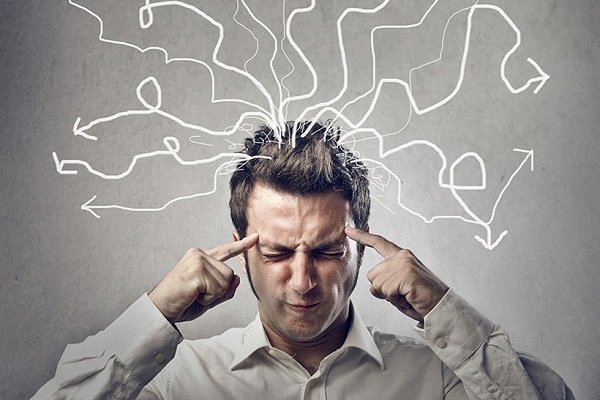Critical Thinking And Our Work
Thinking Is One Of The Most Misunderstood Issues In The World Today. My Purpose In This Note Is Not To Teach Ways Of Thinking Or Even Critical Thinking.
As I promised in issue 212 of the magazine to briefly explain the ten non-technical skills needed by the 2020 world (will the 2020 world save us space?), I have dedicated this note to critical thinking.
The second part of this memo is entitled Critical Thinking; Hard-to-reach soft skills are published in the 216th issue of the network monthly.
The spotlight shines brightly; Every moment on one person. The conference hall is full of noise. Each of the invited or uninvited guests stands under the spotlight and behind the microphone for a moment, saying something and leaving.
The previous sound is still resonating in the hall when the next person comes and reads a poem and leaves. Someone comes from behind the curtain, pushes the main speaker aside, and narrates a distant memory of himself.
The keynote speaker tries to push him away, but he clings to the desk and does not leave the stage.
The main speaker is desperate. He turns off the microphone, but the man behind the curtain is now screaming. Someone in the crowd is shouting; The spotlight is focused on him.
The person next to him suddenly gets up, pushes the man, and puts himself under the light. Everyone who enters the hall wants to take over the spotlight and the hall—those who before resisted.
The hustle and bustle fill the entire hall. You might think this conference room is an imaginary place in our minds. You are both right and wrong. There is no place in our minds; Our own minds. Normally, most of us have such a confused mind.
Thoughts come one by one, without being invited, for a moment or moments under the spotlight, and then another thought dimension and another dimension. Our mind is constantly the scene of the forcing of different thoughts and feelings.
Normally we do not choose them.
It is a function of what happens to us or how we feel. But will such a chaotic conference produce any results? Usually not. The result is usually fairly regular and coherent thinking.
Something we often lack or, in other words, do not get. We have not learned to consciously bring a subject to the stage of our mind, set the spotlight on it, perform a simple operation on it, draw conclusions from it, and direct it out of the exit of our mind.
Thus, the minds of most people throughout history have been the scene of the onslaught of the thoughts, imaginations, and emotions associated with them; No product; No pleasure, and full of fatigue.
If you are one of these people, you can continue on your way; It is easier; But if you do not want to be captivated by the pursuit of spontaneous imaginations, feelings, and thoughts, I warn you, you have a long and difficult way to go; A way that, of course, is worth the effort. Our thinking and occupation …
Thinking is one of the most misunderstood issues in the world today.
My purpose in this note is not to teach ways of thinking or even critical thinking.
As I promised in issue 212 of the magazine to briefly explain the ten non-technical skills needed by the 2020 world ( will the 2020 world save us space ? ), I have dedicated this note to critical thinking.
But thinking is not the only thing that matters in our job. Our whole lives, including family and social life, formal and informal education, our emotional relationships are affected by critical thinking.
What is critical thinking …
If I do not want to involve myself in formal and academic definitions, I can consider critical thinking as a kind of conscious thought process in which a person tries to reach a reliable awareness of issues using logical and reasoning methods.
In this process, the person is not satisfied with what is presented as a belief and presupposition and tries to pass it through the purity of reason and logic through diagnosis, data collection, analysis and evaluation, and the degree of compliance.
Identify them with reality, discover the existence of a mistake or sophistry in one’s own and others’ thoughts, and reach a kind of enlightenment. Thus, critical thinking is not only about subjects but also the process of thinking.
By this definition, we can mention some components for critical thinking :
Awareness: Critical thinking is conscious, but it also aims to achieve a kind of convincing consciousness from a rational and reasoning point of view.
Reality: Critical thinking has an important balance: reality. Understanding what is real and what is not is one of the most important goals of critical thinking. Only what comes out of the proud reality test deserves to be heartbroken.
Method: Critical thinking is not only a rational activity based on logic and tries to avoid sophistry, but during this activity, important information is collected, categorized, evaluated, and judged.
Doubt: A person with critical thinking is not satisfied with any information that comes to him; It doubts the beliefs and theories that seem very obvious and then decides through processes whether to accept them or not.
Questioning: Questioning is the result of doubt and the beginning of critical thinking. The critical thinker follows Rumi’s theory that: low-barley water, thirsty.
Why critical thinking …
You’ve probably seen people who, when they read interesting news on a social network, not only believe it but immediately send it to their friends. On the other hand, some people already think that everything social networks and media say is a complete lie.
Both groups lack critical thinking because critical thinking does not rule in advance and waits for sufficient evidence and information or seeks them out.
It is not enough to hear one of your employees say something wrong about you. If you find out that your employer will hire someone else in your department, it does not mean a conspiracy to fire you.
A phone call from your spouse that they did not want you to know about does not mean that they are unfaithful.
There may be convincing explanations and evidence for all of this. In all these cases, we do not have to go through critical thinking step by step to conclude.
It is enough for critical thinking to become a part of our daily habits. Then, when we hear the news, we will not judge immediately. We will not allow stereotypes and stereotypes to become the main speakers of our minds and take over the whole scene.
Application of critical thinking …
Critical thinking is not just a way of thinking for great philosophers and thinkers. We can all use it in all aspects of life. What subject should I study in high school or university?
How do I talk to my father to be effective? How do I solve a problem I have with my employer? Who should I vote for in the parliamentary elections? Which newspaper or media is reliable?
Which hospital provides acceptable services? How do I interact with my rebellious child? How can I be more creative in my work? Why can’t I be regular in my daily life? What books should I read, or what courses should I take for career advancement?
Will the strategy I have chosen for my business work?
These are just some of the goal-setting shareware that you can use.
I do not mean critical thinking is a magic box that contains answers to all questions and solutions to all problems; Rather, it is a tool and method that can use to analyze and analyze information in any field, to conclude, and at the same time to a large extent the method is reliable.
Critical thinking can learn …
No one is born with critical thinking and, of course, no other kind of thinking. We may have the capacity to do this in our brain structure or genetics, but eventually, we have to learn any creative or critical thinking.
To do this, we must be equipped with several tools or skills:
Observation, attention, and concentration: Asking questions is the first step. But not every question arises from critical thinking or causes it.
A good question is the result of careful observation, correct attention, and sufficient concentration. If we do not pay close attention to the subject or the profession of the other party, a good question will not ask.
Logic: Logic is defined by principles and rules that guide reason; through applying logic, our intellect tries to be infallible and understand the correct way of examining matters.
For example, the principle of non-contradiction informal logic states that you can’t study this at home and watch a movie in a city cinema at the same time.
In this logic, if someone makes a contradictory claim, his claim can counter with such a principle.
The principles of logic help us strengthen the foundations of our reasoning and argument and find sophistry in our own and others’ arguments.
Order, discipline, and calm: Order is closely related to logic. Without order in mind, every part of our thoughts sings. Order in mind helps us to move at our maximum mental strength without slipping and shaking.
To be a critical thinkers, we must put everything in its place in our minds and replace peace with mental turmoil.
The danger…
Some may think that critical thinking means criticizing others. But this is not the case. One equipped with critical thinking primarily questions their beliefs and assumptions; He is humble. After all, he knows that he is not infallible because he is human. He does not have false self-confidence because he knows that it is the source of many cognitive errors and biases.
Practicing critical thinking …
As exercises for critical thinking, I suggest that you try to question at least one of the thoughts or behaviors that you have accepted as consistent principles each week, gather information about it, evaluate and judge. Finally, if that thought or behavior comes to you, it Continues, and if not, see how you can change it.
This can start with the simplest tasks; Check the route you take to home or work every day. Is it the shortest or the best, or the most economical route?
Look at the map about it, look for other ways and means.
Then evaluate and judge. If you still think there is a reason for its superiority, continue it; otherwise, try another way or means. The food you have been eating for years, how you treat your friends, how you spend your money, the investments, the books you read, your work and …
If you can review at least 50 important things in your life in one year, you can say that this is a rethought life; The only kind of life that, according to Socrates, is worth living. “An inexperienced life is not worth living,” says Socrates.













